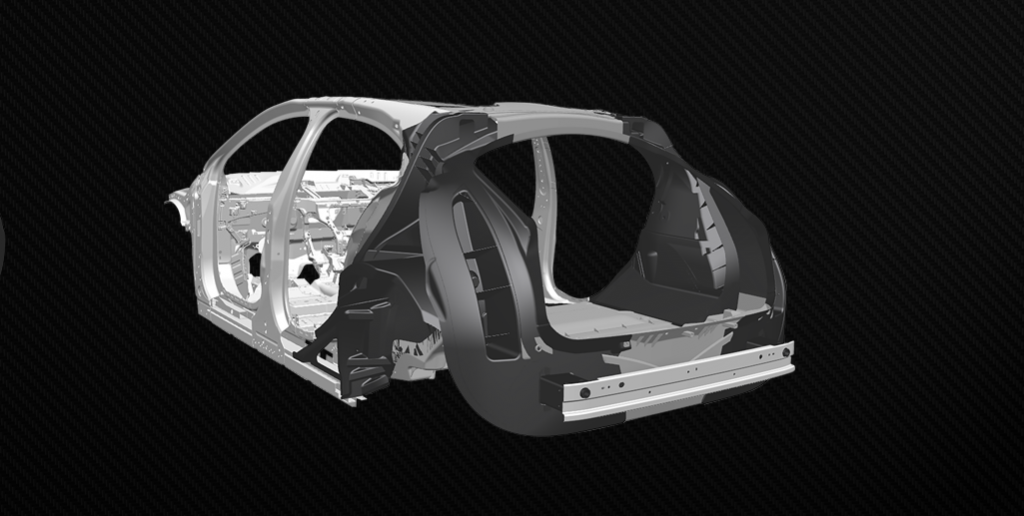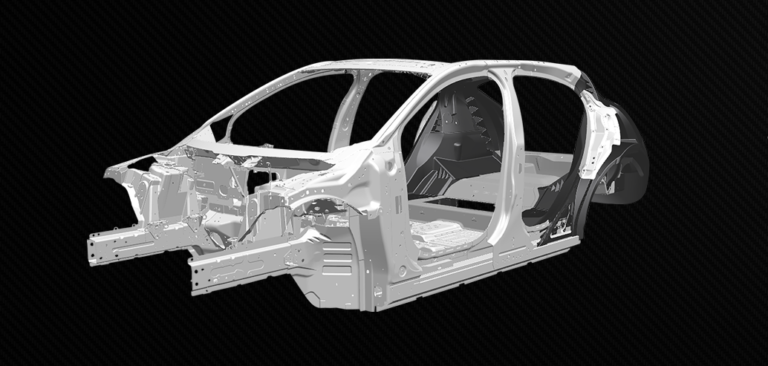Jaguar Land Rover says it is preparing for future electric vehicle development not just in the area of powertrains but also with advanced lightweight composite research, which it says will be vital in delivering increased EV range. To this end, the manufacturer is leading the Tucana project, a four-year program aimed at accelerating mainstream use of electric vehicles and making vehicles lighter to both decrease tailpipe emissions and reduce energy consumption of electrified powertrains.
Jaguar’s stated intent is to replace aluminum and steel components with composites in its existing designs, while increasing vehicle stiffness by 30%, cutting weight by 35kg and improving crash worthiness. Any reduction in vehicle body weight will help facilitate either increased range from existing batteries, or the offsetting of weight from larger battery packs.
Marcus Henry, research manager at Jaguar Land Rover, commented, “The development of new lightweight body structures to complement the latest zero-emissions powertrains will be key as the electrification of our vehicle range continues. This project will allow the true environmental credentials of electric vehicles to be realized by enabling wider adoption of the technology and will propel Jaguar Land Rover and the UK supply chain into a world-leading position in low-carbon technology.”



